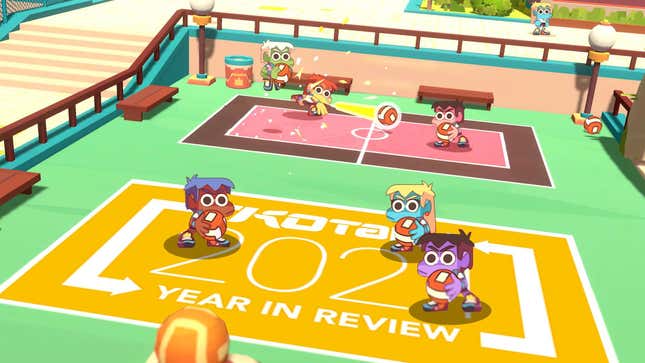
2021 was a year, wasn’t it? The pandemic is still causing unnecessary disruptions despite the widespread availability of vaccines. The semiconductor shortage is whipping the economy’s ass. Black and queer people are still dying. It was hard playing games this year, especially when I didn’t have a PS5 or Xbox Series X/S until just a few weeks ago. Still, I managed to distract myself with more games than I thought I actually played. And while I haven’t beat every one here, I found solace in some, levity in most, and enjoyment in them all. Here are my top games of 2021.
Deathloop
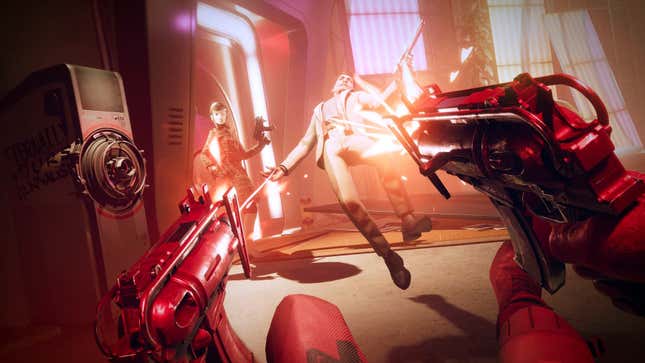
Arkane Studios is the master of first-person immersive sims, and Deathloop is a testament to that. A thrilling psychological tale about choices, time, and consequences, Deathloop builds on the excellence of Dishonored and cranks the volume up to 11. It’s brutal, it’s fast, but it’s also a delight, especially as you unlock the various abilities and weapons. Plus, there are two—not one, two!—Black playable characters here. Consider me sold.
Death’s Door
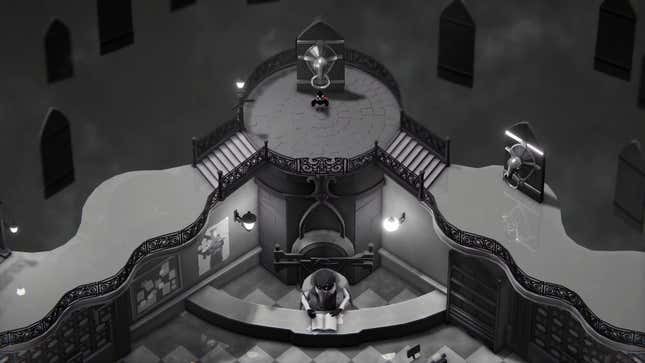
Titan Souls, developer Acid Nerve’s first project, was a cool little boss rush game that felt a little incomplete to me when it came out in 2015. But I was intrigued by what the studio was doing, and Death’s Door is the next logical step. An isometric dungeon-crawler in which you control a crow who reaps souls, Death’s Door is one of those games that expertly blends feel and mood. It understands and executes its goal without overstaying its welcome. It also has a dope boss fight that illustrates its elegant game design. It’s no wonder Death’s Door appears on most of Kotaku’s end-of-the-year lists.
Dodgeball Academia
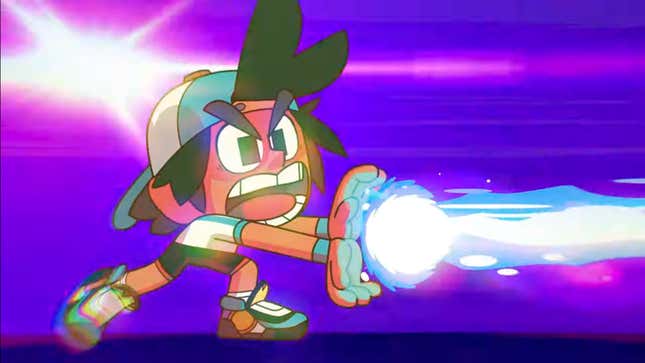
A Shonen anime through and through, Pocket Trap’s Dodgeball Academia is probably the most fun I’ve had with a video game all year long. It’s an absurd, charming little RPG about Otto, a student who leaves his lame-ass school against his parents’ wishes to join the collegiate at Dodgeball Academia, a university of sorts for aspiring dodgeball players. What you get is a sports-centric dodgeball-em-up, replete with various power balls (like electricity and homing), special moves, and side missions to complete. It all gives way to a story about identity, finding your true self, and trusting your friends. Very Naruto or One Piece shit if we’re being honest, and I love it!
Final Fantasy VII: The First Soldier
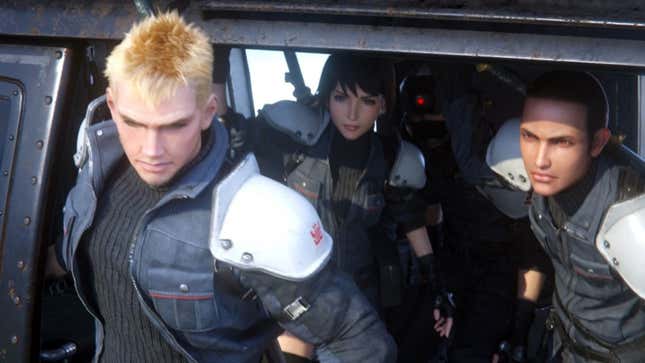
Not going to lie, I wasn’t expecting to enjoy Ateam’s Final Fantasy VII: The First Soldier as much as I have been, and that’s primarily because of the platform it’s on. I mean, it’s a mobile game! The primary input method is the touchscreen. While you can’t get super accurate in this battle royale shooter because of that, The First Soldier is still a good way to kill some time, especially if you missed Fortnite on iOS. And because it’s a Final Fantasy game, you can expect the usual accouterments—summons, Gil, materia, costumes to dress your soldier up as iconic series characters, and different playstyles ranging from the sword-wielding warrior to a shuriken-using ninja. There are even Chocobo you can customize, so what’s there not to like?
Pokémon Unite
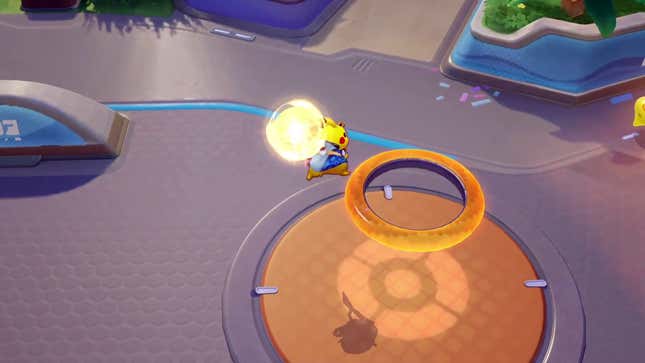
I’m a big fan of MOBAs, having spent a good three or four years playing Titan Forge Games’ Smite when it launched in 2015. TiMi Studio Group’s Arena of Valor was also in my MOBA rotation before getting upstaged by the developer’s Pokémon Unite. It’s become my main MOBA now, on account of both IP and approachability. But more than that, what Pokémon Unite has done is helped me find joy in MOBAs again. I can be very competitive. I get frustrated when I lose because others aren’t pulling their weight, but Pokémon Unite’s diverse characters and fun events push me to see beyond the competition, to enjoy both the aesthetic and gameplay without focusing solely on the score. It’s a nice reprieve from the high-intensity MOBAs elicit, even though Pokémon Unite can get pretty intense.
Scarlet Nexus
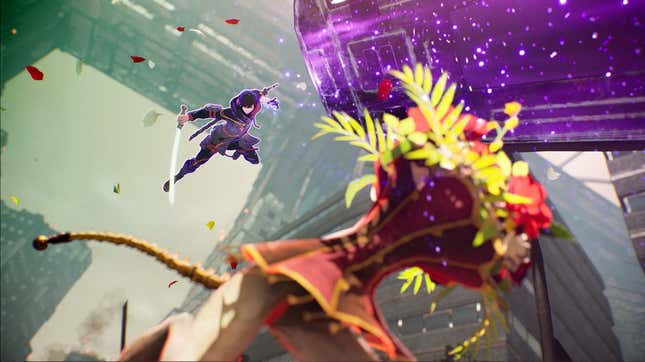
This is basically anime, the video game. Developed by Bandai Namco Studios and Tose, Scarlet Nexus piqued my interest when it was revealed in May 2020 and blew me away when I finished it sometime after its June 25 release. It’s a slick action-RPG, with dual protagonists whose narratives are intimately connected, prompting you to play through the game twice to see the story from both of their perspectives. It’s an evocative, emotional, and exhilarating journey with tight controls and even tighter powers. It’s fun, but what I love most are the moments between playable characters Kasane Randall and Yuito Sumeragi, as they come to understand their connection to each other and the events that unfold over the game’s 25ish hours. Scarlet Nexus is brilliant, and though it looks like a Tales game, it’s more than that.
Skate City
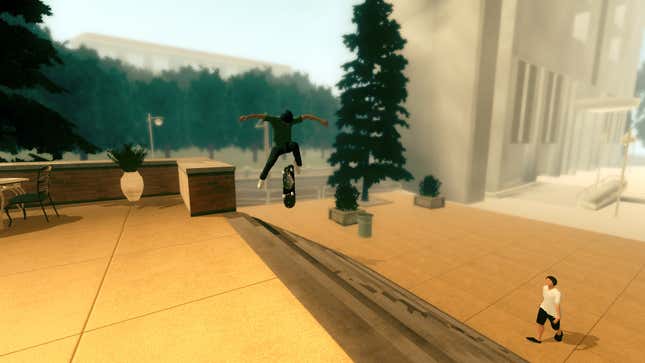
No list of mine would be complete without skateboarding making an appearance. Though it’s been available via Apple Arcade since 2019, Agens Games and Room8 Studio’s Skate City grinned onto consoles and PC this year without much fanfare. That’s understandable, as it is pretty lowkey. But everyone’s missing out on what amounts to a lofi version of EA’s Skate. Skate City, much like Skate, asks you to use the thumbsticks to chain tricks, grinds, and spins together to complete challenges while racking up points. The low-poly aesthetic, coupled with the chill-hop music, make for a whole vibe. And it’s a perfect game to fill some time. Honestly, I can’t put it down.
Skul: The Hero Slayer
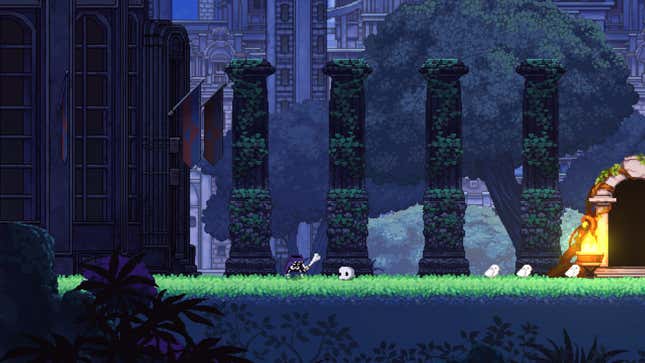
Neowiz Games’ Skul: The Hero Slayer is a cute roguelite action-platformer. But truthfully, don’t let its cuteness fool you: This is a hard-ass game! You play the eponymous Skul, a little skeleton warrior who can swap his head for that of another head which then transforms his entire body and grants him different abilities. There’s a grim reaper, mage, ninja, werewolf, and so many more to pick up that playing through and getting whooped in Skul: The Hero Slayer always presents another opportunity to discover a new playstyle. That’s the best part: no two runs are the same, and even if there are similarities between the two, either in the form of familiar pathways or enemies in familiar spots, you can switch it up by simply swapping heads.
Tales of Arise
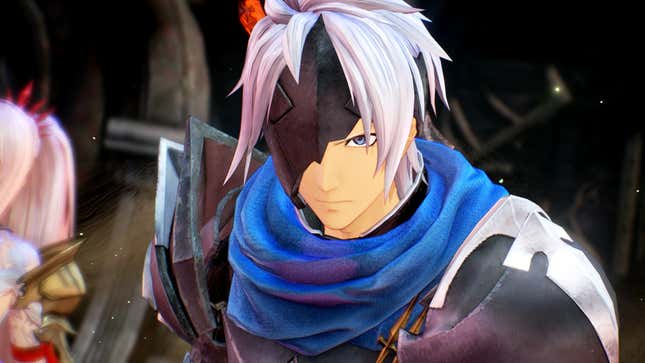
Much like Scarlet Nexus, Bandai Namco Studios’ Tales of Arise is also anime the video game. Those familiar with the Tales formula know what to expect in this action-RPG, but everything’s been cranked up to 11. The visuals are absolutely stunning. The real-time gameplay is tight as all hell. The characters are fascinating and deep. But what really strikes me is the game’s story, which is this interweaving narrative about class and liberation. It packs so much meat onto its bones that while some of it can feel a little dry, most of what Tales of Arise offers is both enticing and delectable. I’m still in the beginning, but I’m stoked to see more of what Alphen and his eclectic party members get into.
Unpacking
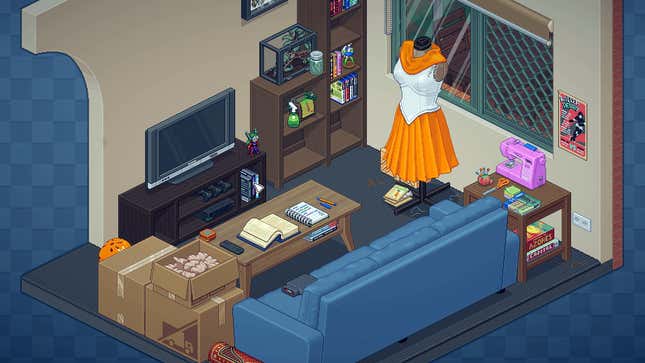
Who knew a game with absolutely NO DIALOGUE could be so heartbreaking, and yet, Witch Beam’s Unpacking is just that. A story-driven puzzle game that follows an unnamed protagonist as they go through life’s various stages—early adolescence, college life, first relationships and their fallout, etcetera—Unpacking says so much about finding ourselves in and out of love without saying a single thing. It’s a beautiful experience, one held up by excellent environmental, sound, and visual design. It also reminds us how much boyfriends can suck, especially when they don’t make space for you. It might be short, but Unpacking will stick with you for a long time after.
With that, I say goodbye to 2021 and all its bullshit. Most of it, like the pandemic and semiconductor shortage, will follow us for a while, which sucks. Similarly, a lot of these games will hit my never-ending backlog as 2022's game line-up is looking mighty stacked. Still, this was an excellent year for games, and I can’t wait to see what else is in store for next year.
Thanks for a dope first year, dear Kotaku readers. See y’all in 2022!